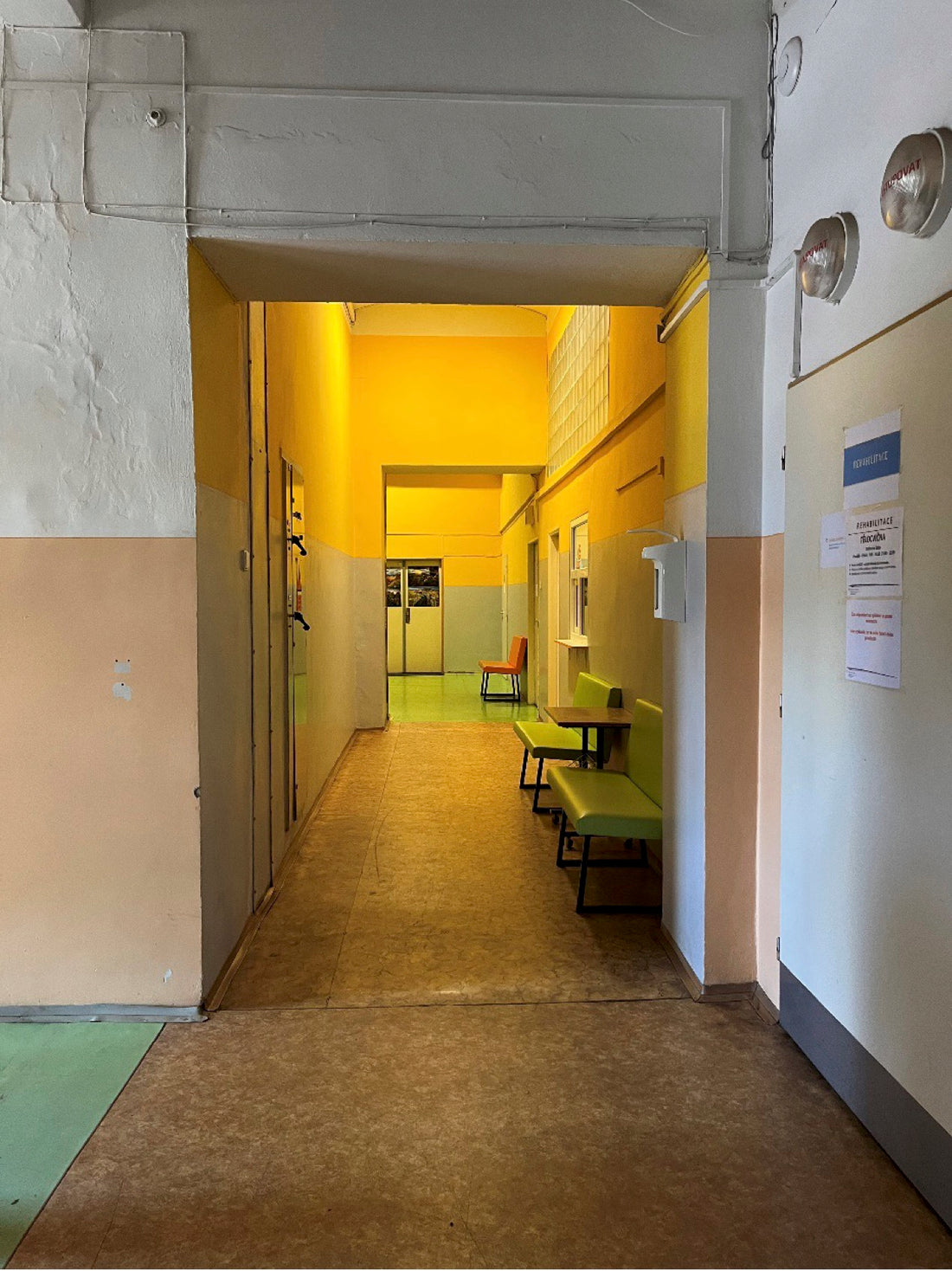Faithfully Seeking Franz is a quirky quest for Prague-born, German-speaking, dead mentor, Franz Kafka (1883-1924). The search for the man and the writer is both a personal journey and a venture of two in the field—E. (myself) and M. (my partner)—that moves through memoir, essay, travelogue, poems and photographic documentation. The aim: to tap Kafka’s process of anxiety and creativity, and to connect.
I came to Kafka as an angsty teen—journeying into the world by way of world literature. Kafka got into my head with The Metamorphosis, the transformational story of Gregor Samsa—dependable son, brother, employee and family champion who wakes up one morning in the body of a giant bug. A story based on a fantastical premise, yet soberly told and seamlessly real. A protagonist troubled and troubling, yet eminently compelling. An inside/outsider; I could relate. I fell hard for a fictional anti-hero and his creator.
He’s never really left me.
I pursued Kafka first in his fiction—translations of his stories and fragmentary novels, Amerika (a.k.a. The Man Who Disappeared), The Trial, The Castle. Then in his diaries and letters—the fictional themes of guilt, shame, absurdity, strangeness and alienation never very far from his biographical experience. Contradictory longings also. When my own life permitted, I began tracking him in the field—seeking traces where he lived, dreamt, worked, wrote, vacationed, convalesced, died, and was laid to rest; M. my foil and helpmate.
Kafka has come right up through the centre of my life, and I’d been faithfully seeking the man inside the writer long before I saw the search as building toward a book. The field part of the quest—begun over a decade ago—comprises pieces on ventures in some thirty K. locations: in Prague and throughout Europe. The book is soon to be released, but the quest is not over. I’m still rereading and dreaming, still pinning flags on the map, still thinking of continuing on the itinerary—guided by hints, hunches, and indications; open to being surprised by what might be offroad, under a bridge, across a meadow or down a hall. There’s the affirming thrill of a felt connection. There’s disappointment too. But even letdowns and glitches can intimate the company of K.
The term Kafkaesque was coined to describe the kinds of bizarre, darkly humorous, vexatious and/or dehumanizing situations that are depicted in Kafka’s writing. It’s a useful term, and when a real-life situation fits the descriptor, one feels the K. connection.
Last month, on our first post-FSF trip, M. and I drove north from Prague, revisiting the central Bohemian village of Želízy (Schelesen in German), where Kafka convalesced on several occasions. We then continued northward to the town of Rumburk (Rumburg in German), to a K. destination (near the border with Germany) that we hadn’t yet visited: the former Sanatorium Frankenstein, a spa-treatment centre built at the turn of the last century where Kafka stayed for ten days in 1915—as a patient on a research mission. Our trip to Rumburk in search of traces of K. turned out to be singularly disappointing, and yet, perhaps by dint of Kafkian consolation, it spurred a poem for the road:
The Poem Begins in Želízy
with the pressing
of purple pea vine flowers.
Kafka might have touched their mesic
soil with his long thin fingers.
(One tends to believe in pictures.)
I pluck and press some purple
chicory too: bright fall day keepsakes.
My word for purple is aegis.
I’m shooting photos all along—
to document the route. Kafka
would have detrained at the Rumburk railway station
and taken a cart or carriage to the Frankenstein
Sanatorium. 1915, a ten-day stay,
both as patient and rep—of The Workers’
Accident Insurance Institute for the Kingdom of Bohemia /
Arbeitsunfallversicherungsanstalt des Königreichs Böhmen
(Would you like to try that in German?)
His mission: to relax while scouting
a suitable campus for soldiers with war-nerve disorders.
The art nouveau design of the buildings, woodsy setting,
“hilly—not mountainous country,” he wrote,
“are right for my state of mind.”
Frankenstein was a good enough fit—
Kafka knew of the stringencies that can squeeze the ‘i’ out of fish,
the feeling of no good
home for the crow.
In 1917 the place became the People’s Krankenhaus
for neurasthenic disorders. In WW2, the campus
was used by the Nazis.
Since the 1960s, it has served
as a rehab clinic.
“No snapshot is privation,” Kafka wrote to his fiancée.
I feel the same;
I’ve arrived with my Canon—
snapping what’s standing from every outside angle:
the ivy on the walls, the gables and frames,
the threadbare veil ...
I wonder what kind of firm
would want to call itself transparent …
I ask to use the WC, which gets me into the central wing—
in from the sun on the lindens
and birch, long thin
fingers stroking the oaks.
I’m in the hallway Kafka would have passed through—
just like this.
The smiling Czech attendant
unlocks the door to the WC,
hands me a roll of purplish
toilet paper. As luck would have it,
or maybe fate, the flashcard
in the Canon, I discover, is defective. All my photos—
the route from Prague, the Rumburk railway station,
the rundown rehab
buildings and grounds—are lost.
All except for the shot I get of the hall outside the WC—
one against privation: Kafka’s empty
presence on my cellphone.

Hallway outside the WC, Léčebná Rehabilitace (Rehab Hospital),
26 Lesni, Rumburk, Czechia
About the author
Elana Wolff is the author of seven collections of poetry and a collection of essays on poems. She also has co-authored, with the late Malca Litovitz, a collection of rengas and co-translated, with Menachem Wolff, poems from the Hebrew by Georg Mordechai Langer. Elana’s poems and creative nonfiction pieces have appeared in Canada and internationally and have garnered awards. She has taught English for Academic Purposes at York University in Toronto and at The Hebrew University in Jerusalem and currently lives and works in Thornhill, Ontario. Elana’s collection, Swoon (Guernica Editions, 2020), received the 2020 Canadian Jewish Literary Award for Poetry. Faithfully Seeking Franz (Guernica Editions, fall 2023) is her latest work.



